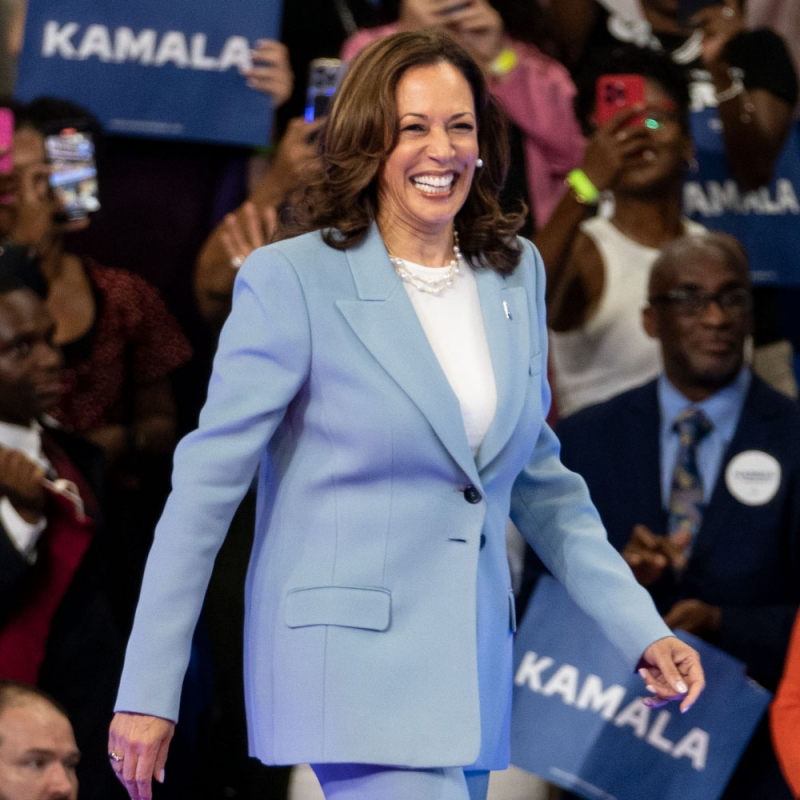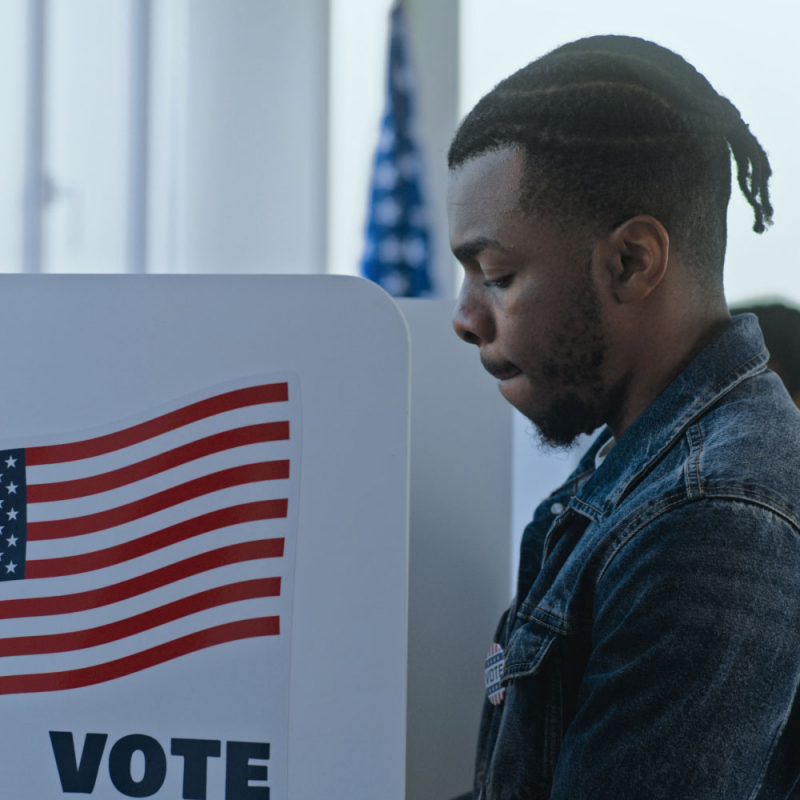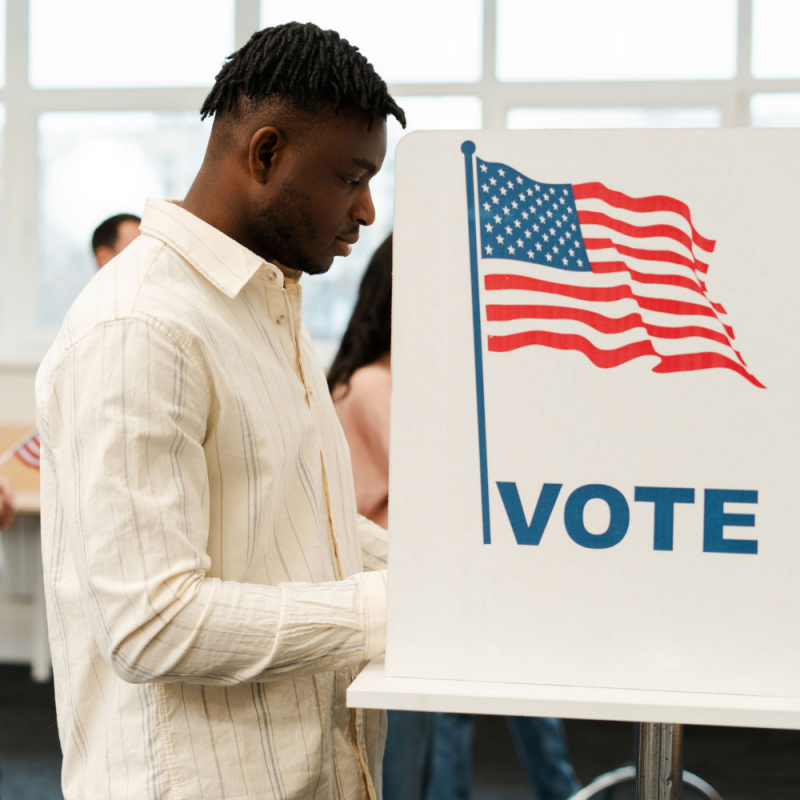
The Black Economic Alliance (BEA), a nonpartisan group of Black business leaders and aligned advocates, released findings from a recent comprehensive survey conducted by Hart Research. The survey included 1,602 registered voters, among whom 883 were Black Americans, and aimed to explore Black voters’ key driving factors and policy priorities going into the upcoming election. The interviews were conducted online from November 6-11, 2023. The sample is demographically and geographically representative of the electorate and is consistent with the political dispositions of voters nationwide.
The survey results paint a clear picture: economic issues aren’t just important –– they are critical for elected leaders to earn Black support. This memo provides insights from voters across racial and party lines on policies they most want policymakers to focus on –– and confirms that an overwhelming majority of voters believe policymakers should prioritize crucial policy solutions that will improve Black economic outcomes.
The findings underscore the popularity of many policy proposals that research confirms are well-positioned to meaningfully expand Black economic prosperity and wealth, as captured in the BEA Foundation’s newly unveiled legislative agenda, the Policy Agenda to Advance Work, Wages, and Wealth.
Poll Highlights
The economy is the primary issue for Black voters.
- For Black voters, economic issues rank above other key issues –– including national security, abortion, and immigration.
- Emphasizing policy solutions that will:
- increase affordable housing,
- close the racial wealth gap,
- lower healthcare and prescription drug costs,
- and create jobs and workforce development,
will be a particularly strong fit with Black voters.
- Black voters want elected leaders to prioritize closing the racial wealth gap, and consider it the second highest policy priority –– above even jobs, healthcare costs, and other high-priority issues.
- This holds true for important Black constituencies, including Black male voters aged 18-34, Black voters in battleground states, suburban Black voters, and those who express interest in voting at lower rates.
- The cost of housing is among the top priorities for all voters –– and the vast majority of Black voters believe the below housing policies will help people like them, as do a solid majority of all voters:
- 91% of Black voters believe reducing the costs associated with buying a home will help people like them (as do 83% of all voters).
- 91% of Black voters believe that increasing the supply of affordable housing for sale will help people like them (as do 78% of all voters).
- 90% of Black voters believe that increasing the supply of affordable rental homes will help people like them (as do 76% of all voters).
- 84% of Black voters believe reducing the costs associated with maintaining a home (e.g., repairs) will help people like them (as do 80% of all voters).

- Creating jobs and developing the workforce are also top priorities for all voters –– and the vast majority of Black voters believe the below jobs and workforce development policies will help people like them, as do a solid majority of all voters:
- 93% of Black voters believe making college, technical school, and other post-high school training more affordable would help people like them (as do 81% of all voters).
- 90% of Black voters believe establishing or expanding technical and vocational education programs in high schools will help people like them (as do 83% of all voters).
- 90% of Black voters believe tying the minimum wage to inflation would help people like them (as do 75% of all voters).
- 89% of Black voters believe making benefits like healthcare coverage and childcare move with their jobs would help people like them (as do 80% of all voters).

- Voters also believe elected leaders should do more to make sure all entrepreneurs have the opportunity to succeed –– and the vast majority of Black voters believe the below entrepreneurship policies will help people like them, as do a solid majority of all voters:
- 89% of Black voters believe establishing or expanding programs to teach business owners about funding opportunities would help people like them (as do 71% of all voters).
- 87% of Black voters believe increasing access to flexible loans would help people like them (as do 71% of all voters).
- 85% of Black voters believe investing in mentorship and programs to support local entrepreneurs would help people like them (as do 71% of all voters).
- 79% of Black voters believe increasing access to loans of up to $150,000 would help people like them (as do 66% of all voters).
- Talking about economic issues with a frame of “improving economic opportunity for all” works well with Black and white voters.
- The American electorate – and Black Americans in particular – are on board with the fundamental premise that policies to ensure equal opportunities will create economic growth across the economy.
- Framing policies that ensure equal opportunity as engines of economic growth that will benefit everyone is more compelling than emphasizing that these policies will increase economic fairness. Voters of all stripes want their elected leaders to enact policies that will address their kitchen-table economic hardships and create economic growth more broadly.
- Elected leaders can meet voters where they are by emphasizing that creating equal opportunities will fuel economic growth. Significant majorities across the electorate hold this point of view, including majorities of Democrats, Independents, and Republicans; Black voters, Latinx voters, and white voters.

- Communicating about support for policies that will reduce racial inequality along multiple dimensions is a win for elected leaders as it creates favorable feelings toward them across the electorate, and at especially high rates among Black voters.
- This is true at very high rates for policies that will reduce racial inequality in access to affordable housing, employment, voting rights, and small business and entrepreneurship opportunities.
- Importantly, the boost in favorability that elected leaders will get is broad-based, with majorities across the political spectrum and majorities of voters of color and white voters saying they would feel favorable toward an elected leader who prioritizes reducing racial inequality along these dimensions.


